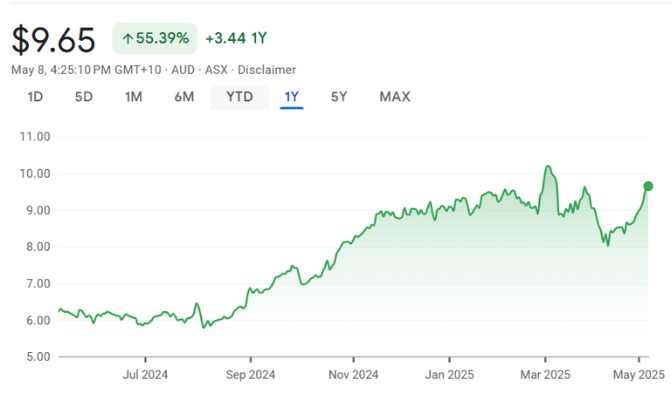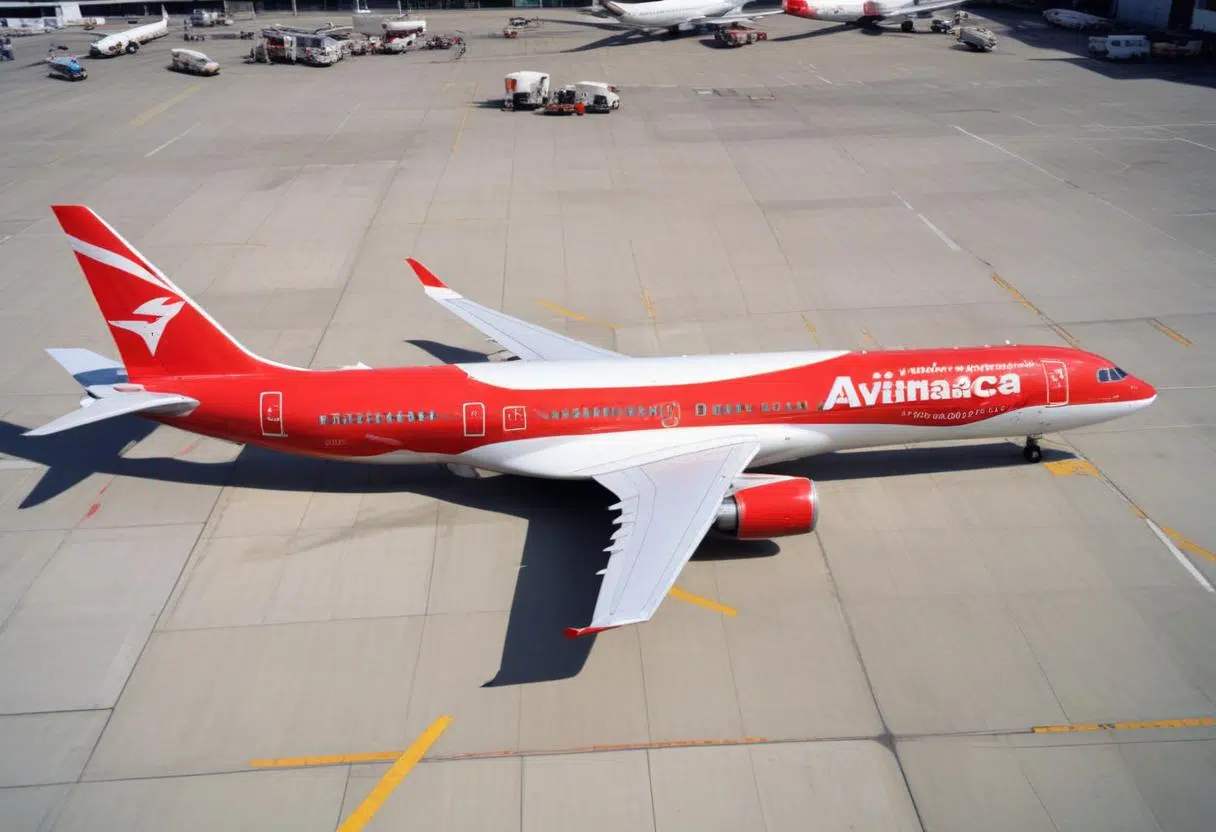Qantas Airways Limited (ASX: QAN)Share Price and News

Overview Of Qantas
Qantas Airways Limited (ASX: QAN), headquartered in Sydney, is Australia's national airline and one of the largest in the Asia-Pacific region. The company operates both domestic and international flights, servicing 63 domestic and 35 international destinations across 23 countries. Qantas’ operations span passenger transport, freight services, and aircraft maintenance.
Renowned for its commitment to safety and reliability, Qantas is consistently ranked among the world’s safest airlines. Its strong market presence and competitive edge have helped establish it as a key contributor to the Australian economy.
The company operates through two main divisions—Qantas Domestic and Qantas International—with the domestic arm maintaining a leading market share. Additionally, Qantas’ subsidiary, Jetstar Airways, expands its reach in the budget travel segment, serving both domestic and international customers.
By focusing on both premium services and low-cost travel, Qantas successfully caters to a wide market, positioning itself as a versatile and resilient airline.
Qantas' Company History
Qantas was founded in 1920 in Queensland and began by offering regional flights. It played a pivotal role in shaping Australian aviation as it expanded internationally in the mid-20th century, becoming the first airline to operate a commercial passenger service from Australia to London. Over the decades, Qantas has been a leader in aviation innovation, introducing various technological advancements to improve operational efficiency, customer experience, and safety.
Privatisation began in the early 1990s and was completed in 1995. This transition gave Qantas the flexibility to expand, modernise its fleet, and invest in new technology. Since then, the airline has built a global network and strengthened its market leadership. Its successful long-haul operations and robust loyalty program have been instrumental in maintaining customer loyalty and reinforcing the brand.
During the 2000s, Qantas shifted its focus to boosting profitability through cost-saving strategies and a refined business model to remain competitive in a globalised market. In more recent years, the airline has refreshed its brand with an emphasis on customer experience, reliability, and sustainability. Initiatives such as transitioning to fuel-efficient aircraft have helped reduce emissions and operating costs.
Future Outlook of Qantas (ASX: QAN)
Looking ahead, Qantas is well-positioned to benefit from the global rebound in travel demand post-pandemic. The airline’s strategic priorities include upgrading its fleet and expanding its international route network—clear signs of its focus on long-term growth. Qantas operates 125 mainline aircraft, including Boeing 787 Dreamliners. It has also placed orders for Airbus A350s, which are expected to enter service starting in 2026.
Sustainability plays a central role in Qantas’ forward strategy. The airline has committed to reaching net-zero carbon emissions by 2050 and has implemented several initiatives to lower its environmental footprint. As global investors place more emphasis on ESG factors, Qantas’ focus on sustainability could enhance its appeal.
While challenges such as fluctuating fuel prices, rising competition in the low-cost market, and regulatory changes remain, Qantas’ strong financial base and trusted brand position it to manage these risks effectively.
International expansion, coupled with the expected rise in premium travel demand, suggests that Qantas’ growth is supported by both consumer trends and its strategic execution.
Is Qantas (ASX: QAN) a Good Stock to Buy?
Qantas appears to be a strong option for investors interested in the Australian aviation sector. Its reputation for safety and reliability, along with its established market presence, makes it a notable choice for those seeking a mix of stability and long-term growth.
The airline has recovered well post-pandemic, and its ongoing investments in fleet renewal and premium services are likely to drive future performance. Cost-control initiatives and operational efficiencies support profitability, even in an environment marked by rising expenses and economic uncertainty.
However, competition from both full-service and low-cost carriers, including Virgin Australia and international entrants, presents a continued challenge. That said, Qantas’ diversified model—covering premium travel, budget options, and freight—gives it flexibility in responding to market pressures.
For investors with a long-term outlook, Qantas offers a promising balance of growth potential, dividend income, and market resilience.
Our Stock Analysis
‘Never buy an airline’: Who said this and does it still hold in the post-COVID-19 travel boom?
Never buy an airline – you’ve probably heard this saying before. Just why is this said and is it still…
What will the Qantas A321XLRs mean for the group? Hint: Investors should be excited but also cautious!
The first of Qantas A321XLRs is now taking passenger flights – the first flight occurred today (September 25) and it…
Qantas (ASX:QAN) Soars 9% on FY25 Results as Revenue Hits A$23.8 Billion
Investors Reward Qantas as Recovery Turns Into Renewed Momentum Qantas (ASX:QAN) surged 9 percent today after unveiling its FY25 results,…
Underlying v Statutory results? There’s a big difference between the 2 – here’s how to tell
When companies report results every reporting season, you’ll hear underlying and statutory results. What is the difference between the two…
Here are Our 11 Top ASX Stocks to Buy in FY26: 1 From Each Sector!
It is a New Financial Year, so it’s time to outline 11 Top ASX Stocks to Buy in FY26. Why…
Why travel shares are getting slammed…and it is not for the reasons you may think
Just when ASX travel shares were out of the COVID-19 doldrums (in that some surpassed their pre-COVID highs), 2025 looks…
Frequently Asked Questions
Qantas has shown strong financial recovery since the pandemic, benefiting from increased demand for domestic and international travel. Its operational efficiency and premium services support ongoing performance.





